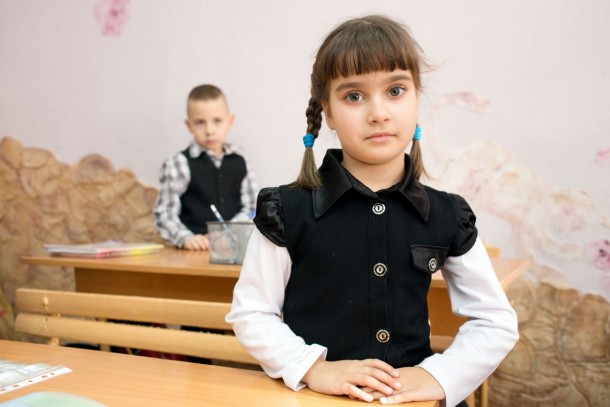28.04.2016 | News

NEFCO and the city of Chuhuiv have signed a grant agreement aimed at investing in energy-efficiency measures in a school and a day-care centre. The project will be financed by the Nordic Energy Efficiency and Humanitarian Support Initiative for Ukraine (NIU). The fund is administered by NEFCO and funded by the Nordic countries. The investment will benefit refugees who have fled to Chuhuiv due to the current conflict in Eastern and Southern Ukraine. The city of Chuhuiv currently has a population of 36,000 people.
The project will enable, among other things, the city administration to replace windows and doors with energy-efficient ones, upgrade the ventilation systems, install individual heating units in both buildings and upgrade the insulation to minimise heat losses in the school and the day-care centre concerned. In terms of environmental benefits, the project at hand will reduce emissions of carbon dioxide by some 120 tonnes annually as well as decrease the emissions of nitrogen oxides and dust. Moreover, the project will help the municipality to save over EUR 37,000 per year thanks to the reduced heat energy consumption.
The purpose of the NIU fund is to finance upgrades of the municipal infrastructure in areas that have been badly affected by the armed conflict in Eastern and Southern Ukraine. Approximately 1.5 million internally displaced persons have been forced to leave their homes as a result of the armed conflict in Ukraine. The situation places a burden on a range of cities that need help upgrading day-care centres, health centres and schools to accommodate new inhabitants.
NEFCO has invested in a wide range of municipal energy-efficiency projects over the years, benefiting over 155,000 children in schools and day-care centres in 39 municipalities in different parts of Ukraine. All in all, the investments have reduced electricity consumption in 230 buildings by 10 gigawatt-hours and cut the consumption of thermal energy by over 21,000 Giga-calories.